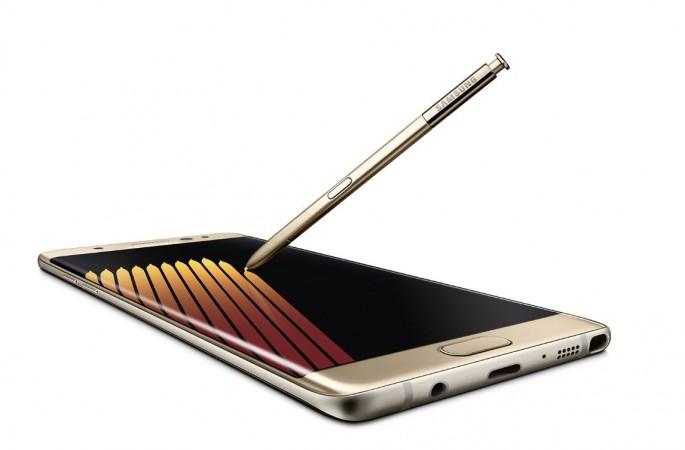
Samsung is still the market leader in world's smartphone market and it may enjoy this status for a while, but it's not infallible at the same time. The debacle of its ambitious Galaxy Note 7 has not only shaken the premium smartphone segment of the company, but also damaged the brand name, exposing its vulnerable nature. It will now take one more year for the next Note device, thus playing into the hands of its rival companies.
Some Chinese companies like Huawei, Oppo, Vivo and Lenovo, and Google will benefit the most from the Galaxy Note 7 debacle. In fact, these companies have the potential to take on Samsung in the premium smartphone segment a few years down the line.
[READ: Samsung profits crash 30% in Galaxy Note 7 explosion]
"Huawei, Oppo and Vivo are some of the brands which have potential to take on Samsung in coming years. Most of these Chinese brands have evolved on the product design and experience curve and are aiming to be vertically integrated to tighten up their supply chain and have better control on their product portfolio," said Tarun Pathak, a senior analyst with Counterpoint Technology Market Research.
"Apart from this, these brands are also expanding beyond their native country with aggressive investment in offline channels and aggressive marketing campaigns," he added.
Karthik J, who works with International Data Corporation (IDC), said that Samsung sales will continue to be good in price-conscious markets like India despite the Note 7 failure, but a vacuum will be felt in the premium segment.
"India being a value conscious market, has given Samsung an edge through its product offering which is largely confined to less than US$300 price category. More than 90 percent of Samsung shipments in India are less than US$250 which makes it less vulnerable to the Note 7 impact," said Karthik.
"However, a vacuum for Samsung at the premium end of the market during the festival season possibly opens up opportunity primarily to other handful android Smartphone vendors present in the premium end," he added.
The sharp fall in Samsung revenues after the debacle of Galaxy Note 7 too has thrown up a grim picture of the company, especially in the premium segment. It has revealed a 30 percent dip in profit in its third quarter report, down from 7.3 trillion won a year ago to 5.2 trillion won.
According to IDC findings, the top two companies in premium smartphone segment – Samsung and Apple – continue to face a decline in growth.
Samsung's Q3 2016 shipment volume was 72.5 million compared to 83.8 million in the corresponding period last year, witnessing a 13.5 percent fall. Its market share also dropped from 23.3 percent in Q3 2015 to 20 percent in Q3 this year.
Interestingly, Apple's shipment volume also fell from 48 million in Q3 2015 to 45.5 million in Q3 2016, and its market share this quarter stands at 12.5 percent against 13.4 percent during the corresponding period last year. The company saw a drop of 5.3 percent in shipment volume.
What really strikes the eyes in IDC's Q3 2016 report is the emergence of Chinese companies in smartphone segment with a couple of them having a 100 plus percent growth while companies like Samsung and Apple are facing a decline.
Huawei has put up a 23 percent growth in Q3 2016 (year on year), while Oppo has made a whopping 121.6 percent growth and Vivo 102.5 percent.
Looking at growth rate of the major smartphone manufacturers around the world, it appears like a few emerging companies like Huawei, Oppo, Vivo, Lenovo and Google will give Samsung a tough competition in the premium smartphone segment a few years down the line, or even overtake it.








